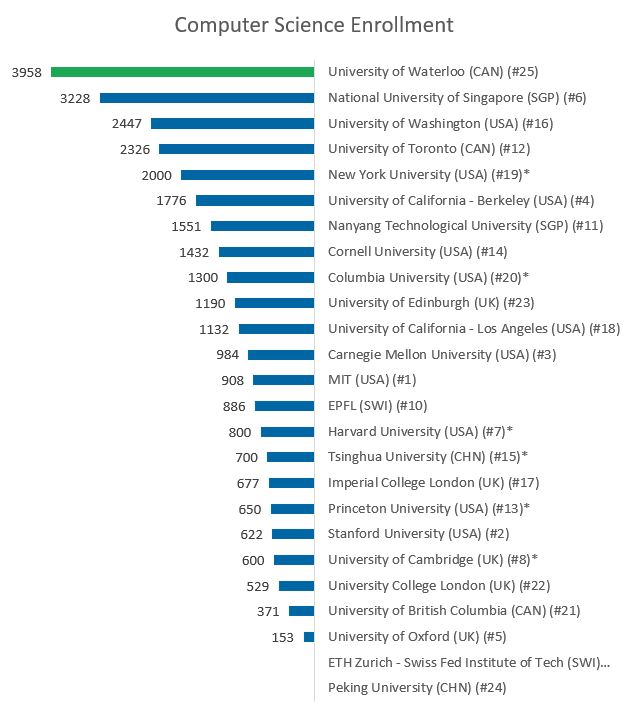Online Degree Programs With Accreditation
In today’s fast-paced digital world, more than 6 million students are enrolled in online degree programs, transforming traditional education. This shift raises an important question: how do we ensure these programs are credible? Accreditation answers this by serving as a seal of quality, allowing students to confidently pursue their education remotely.
Online degree programs with accreditation date back to when institutions sought wider access to education through innovative means. The most significant factor setting accredited programs apart is their commitment to rigorous academic standards, akin to their on-campus counterparts. According to the U.S. Department of Education, accredited online programs represent nearly a third of all undergraduate degrees offered today, underscoring their growing importance in the education sector.

Online Degree Programs With Accreditation
An online degree program with accreditation means it has met certain quality standards. These standards are set by official organizations to ensure education is relevant and valuable. When a program is accredited, students can trust they’re getting a good education. Plus, employers recognize and respect degrees from accredited programs. This gives students an edge when searching for jobs.
Accredited online programs also offer flexibility, making education accessible for all. Students can learn from anywhere and often at their own pace. This is a big advantage for people who work or have other commitments. Additionally, financial aid is often available, easing the burden of tuition costs. Accreditation is crucial for these benefits.
While accredited online degrees have benefits, the process to achieve accreditation isn’t easy. Schools must demonstrate they meet various educational standards. This involves inspections, approvals, and ongoing evaluations. Luckily, this rigorous process ensures the quality of education is high. It also supports continuous improvement in curriculum and teaching methods.
To verify a program’s accreditation status, students should check for accreditation from recognized agencies. This information can usually be found on the school’s website. Students can also explore resources from the U.S. Department of Education. Being informed helps in making the right educational choices. It’s essential to ensure your degree will be valued and respected.
Why Accreditation Matters in Online Degree Programs
Accreditation acts as a quality guarantee for online degree programs, telling students they can trust the education they receive. It ensures programs meet certain standards set by accrediting agencies. Without accreditation, a program may not cover essential skills and knowledge. Graduates from accredited programs often find better job prospects. Employers recognize the value of accredited degrees.
Financial aid eligibility is another reason accreditation is crucial. Students in accredited programs can apply for federal grants and loans. Without it, these financial aids wouldn’t be available, making education less affordable. This factor significantly influences a student’s ability to start or continue their education. Accreditation thus opens doors beyond just academia.
When considering an online program, checking for accreditation should be a priority. Students have several ways to do this. They can check the school’s website or explore listings on the U.S. Department of Education’s site. Accreditation provides a mark of trust and quality assurance. Students can make informed choices about their education.
Accreditation also promotes academic integrity and continuous improvement. Schools are regularly evaluated to ensure they maintain high standards. This process helps institutions stay updated with current practices and technologies. It also encourages schools to innovate their teaching methods. Accreditation, therefore, plays a vital role in enhancing the overall education experience.
Types of Accreditation for Online Degree Programs
Accreditation for online degree programs comes in a few different forms. The most recognized is regional accreditation, which covers entire institutions and is often considered the highest standard. It is widely accepted by employers and educational institutions alike. National accreditation usually focuses on specific types of schools, like technical or vocational schools. Each type serves a unique role in maintaining education quality.
Specialized or programmatic accreditation targets specific academic programs or departments within a school. Fields like engineering, business, and nursing often seek this type. It assures that a program meets industry standards and prepares students adequately for their careers. Many employers look for this type of accreditation when hiring candidates. It adds another layer of credibility to a degree.
Understanding the differences between these accreditation types helps make informed decisions. Each type has its own advantages depending on the student’s goals. For instance, students looking into highly specialized fields may prioritize programmatic accreditation over national or regional. Conversely, those focusing on general education might choose regional accreditation. Making the right choice can influence career opportunities and educational experiences.
When considering an online program, it’s crucial to verify its accreditation status. Checking for accreditation can be done through school websites and official accrediting bodies. Understanding these different types helps students pick the best option for their needs. Accreditation influences everything from job prospects to credit transfers. Thorough research ensures the value of the education you receive.
Benefits of Enrolling in Accredited Online Degree Programs
Accredited online degree programs offer the benefit of high educational standards. Students can trust the quality of education since these programs meet specific criteria. Accreditation helps ensure the courses are challenging yet fair, providing a solid foundation for future learning. This assurance boosts confidence in both students and parents. It means students are learning what they need to succeed.
One of the biggest advantages of accredited programs is their wide acceptance by employers. Degrees from these programs are respected and often preferred in the job market. Employers see these programs as a sign of quality, making graduates more competitive. Not only does this open more job opportunities, but it also offers higher earning potential. This makes the investment in education worthwhile.
Another benefit is access to financial aid, which is only available for accredited programs. Students can apply for loans, grants, and scholarships to help with tuition costs. This financial support makes it easier to pursue a degree without falling into debt. These resources are crucial for students, enabling access to education regardless of their financial situation. It evens the playing field for everyone.
Accredited programs also facilitate credit transfers, providing flexibility in education pathways. Students have the option to continue their education elsewhere or specialize further. This flexibility is especially beneficial for individuals who need to switch schools or programs. Being able to transfer credits can save both time and money. It helps students maintain momentum throughout their academic journey.
In addition to these benefits, accredited programs often attract experienced and knowledgeable instructors. They bring real-world experience into the classroom, enriching the learning process. Engaging with knowledgeable faculty can provide students with valuable insights and mentorship. This connection helps bridge the gap between academic learning and practical application. It’s a game-changer for many students seeking to excel in their fields.
Challenges of Pursuing Accredited Online Degrees
While accredited online degrees offer many benefits, they also come with challenges. One common issue is time management. Balancing studies with work, family, and other responsibilities can be tough. Unlike traditional classes, online courses require self-discipline. This can be challenging for students used to a more structured environment.
Technical issues can also pose problems. Reliable internet access and a functioning computer are essential. Not all students have access to these resources. Additionally, technical glitches can disrupt learning. Navigating different online platforms can also be confusing for some students.
Another challenge is the lack of face-to-face interaction. Online learners miss out on the social aspects of college life. Building relationships with peers and professors can be harder. Group projects and discussions may not be as engaging. This can impact networking opportunities and peer support.
The perception of online degrees can sometimes be a hurdle. While accredited programs are respected, some people still question their value. This can affect how employers view your degree. Constant communication with potential employers is necessary to highlight the credibility of your program. Ensuring they understand the rigor involved is crucial.
Staying motivated can be a significant challenge for online students. The flexibility of online programs can lead to procrastination. Without regular in-person check-ins, it’s easy to fall behind. Setting a consistent study schedule helps overcome this. Motivation and self-discipline are key to success.
How to Validate Accreditation of Online Degree Programs
Validating the accreditation of an online degree program is crucial for ensuring its quality and recognition. The first step is to visit the school’s official website. Schools usually display their accreditation status proudly. Look for information about accrediting agencies. Make sure these agencies are recognized by the U.S. Department of Education.
Another resource is the Council for Higher Education Accreditation (CHEA) website. This site provides a searchable database of accredited institutions. You can confirm if a school or program is officially accredited there. It’s a reliable source for identifying legitimate accrediting bodies. Accessing this site can be a good practice for verifying school credentials.
Contacting the accrediting agency directly can provide further confirmation. Agencies often list accredited programs on their websites. If in doubt, sending an email or making a phone call can clarify. They can confirm the educational institution’s current standing. This step provides extra peace of mind about the program’s credibility.
Students should also be aware of diploma mills, which offer fake degrees for a fee. These institutions may claim to have accreditation, so it’s important to check thoroughly. Genuine accrediting bodies do not recognize diploma mills. Cross-referencing with official sites helps distinguish between legitimate and fake schools. Staying informed protects students from misleading claims.
Finally, discussing with current students or alumni can offer insights into the validity of a program’s accreditation. Online forums and social media groups often have discussions about program experiences. These community insights can highlight both positive and negative aspects. Gathering real-world feedback enriches understanding beyond official sources. Real experiences complement the information collected through research.
Final Thoughts
Accredited online degree programs offer a blend of flexibility and quality, making higher education more accessible. They enable students to pursue their academic goals while balancing other life commitments. Understanding the importance of accreditation ensures students make informed choices for their future.
While there are challenges in online learning, the benefits often outweigh the drawbacks. By validating a program’s accreditation and staying disciplined, students can achieve rewarding educational outcomes. Ultimately, accreditation plays a crucial role in enhancing the value and recognition of online degrees.


